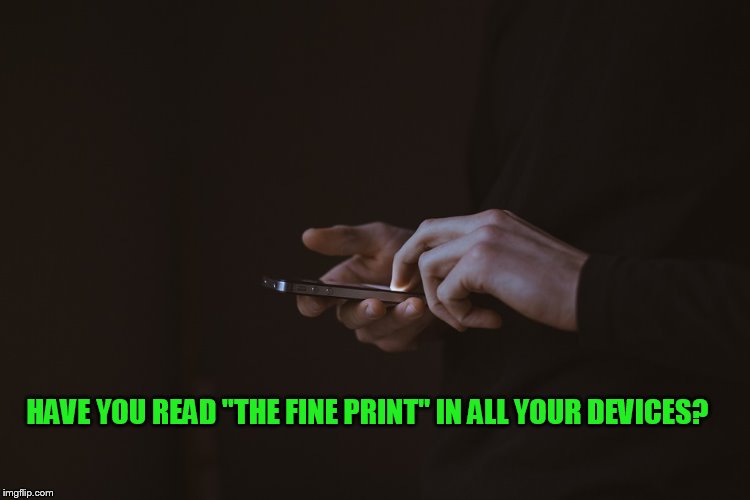 By B.N. Frank
By B.N. Frank
In regard to all artificial intelligence (A.I.), “smart”, and wireless devices, concerns about privacy and data security are not going away and for good reason. Of course, decades of research have also determined that exposure to electromagnetic fields (EMF) from activity trackers and other wearables as well as other wireless sources – including 5G – is biologically harmful. In fact, manufacturers are required to provide consumers with warnings about radiation emissions from cell phones and other wireless devices! Nevertheless, another wireless wearable has been created to be worn like a brooch or corsage on the chest. OMG!
From Biometric Update:
Silicon Valley’s latest gadget is an AI computer you wear on your clothes
Humane Ai Pin aims to replace the smartphone and make wearers more present.
The sum total of human knowledge may be moving from pocket to lapel, with the release of Humane’s Ai Pin, a connected wearable looking to replace the smartphone as humanity’s go-to communication device and/or technological crutch. Reports in Wired, the Wall Street Journal and Reuters say the smart-badge is intended to be worn like a brooch, corsage, or Starfleet insignia, and comes equipped with a camera, text messaging, an AI-powered virtual assistant and – its most sci-fi-adjacent feature – a 720p-resolution interface that projects onto a user’s palm, called a Laser Ink Display. All this for a retail price of US$699 (plus monthly data fee).
With light and depth sensors that monitor facial expressions, voice tone, gestures and other biometric data in the interest of creating user-friendly UX and more authentic emotional responses, it also seems primed to play a role in biometric verification systems. Indeed, previous reports indicate it will use heartbeat detection to authenticate wearers via a unique biometric signature in their pulse. The microphone, camera and gesture recognition capabilities could also all be used for authentication, at least in theory.
Based out of Silicon Valley, Humane’s list of backers is filled with familiar names. The firm was founded by former Apple employees Imran Chaudhri and Bethany Bongiorno, who worked alongside Steve Jobs to design some of that company’s most iconic products. The Ai Pin’s large language model capabilities are powered by tech designed by Open AI, the Sam Altman-owned company behind Chat GPT and Worldcoin; Altman also owns a roughly 15 percent stake in the company. It uses Microsoft cloud computing and has Microsoft money. A $100 million funding boost in march shot its valuation up to a total of $850 million. The first public peek of it was revealed via the chest of supermodel Noami Cambell, who wore it for the 2024 Spring Summer Show during Paris Fashion Week.
Activist Post is Google-Free — We Need Your Support
Contribute Just $1 Per Month at Patreon or SubscribeStar
Chaudhri and Bongiorno have offered the types of quasi-religious statements typical of Silicon Valley startups, saying the pin will help people “remain present,” “reimagining the human-technology relationship as we know it.” In an interview with Om Malik, Chaudhri says “it boils down to how we can productize these large, almost impossible to understand technologies in a way that allows for a harmonious coexistence.” And the firm has, of course, chosen to call itself “Humane.”
Fashion is instant language: the smart badge’s big question
However, the Ai Pin may find itself facing some of the same pragmatic issues as the headsets Chaudhri has previously scorned. Made from aluminum and weighing roughly the same as a tennis ball, it is not exactly subtle; an apt visual comparison is having a miniature bathroom scale on your breast (in black or white options). In its basic form, it is held in place with a magnetized battery worn under the shirt; clips and protective casing are extra, as is chrome detailing that gives it slightly more flair. And there are ever-present questions about privacy. The Ai Pin is not always recording or listening like Siri; it must be prompted with a gesture before recording or taking a photo. A so-called trust light turns on whenever it is capturing data to alert those being recorded. Still, there are many who will hesitate to trust a Silicon Valley firm’s assurances of data security. And a feature that mimics a user’s voice to compose messages will not endear those who already fear the imminent takeover of AI.
But the emergence of the pin also feels inevitable. Its basic function is the tap, much like those Starfleet badges. It further integrates wearable technology and the human body, a trend that (arguably) began en masse with headphones and continues apace.
The final arbiter of Ai Pin’s success, however, is a variation on the question that has haunted humankind from the dawn of self-consciousness to the second VR crash: does it look silly? And if so, are there enough people willing to pay hundreds of dollars to look like a dork? Humane will find out just how fashionable its smart badge could become when it goes on sale in the U.S. on November 16.
Activist Post reports regularly about privacy-invasive and unsafe technologies. For more information, visit our archives and the following websites:
- Environmental Health Trust
- Children’s Health Defense
- Electromagnetic Radiation Safety
- Physicians for Safe Technology
Image: Pixabay
Become a Patron!
Or support us at SubscribeStar
Donate cryptocurrency HERE
Subscribe to Activist Post for truth, peace, and freedom news. Follow us on SoMee, Telegram, HIVE, Minds, MeWe, Twitter – X, Gab, and What Really Happened.
Provide, Protect and Profit from what’s coming! Get a free issue of Counter Markets today.


Be the first to comment on "New “Smart Badge” Comes with Camera, Text Messaging, AI-powered Virtual Assistant, and Interface that Projects Onto User’s Palm"